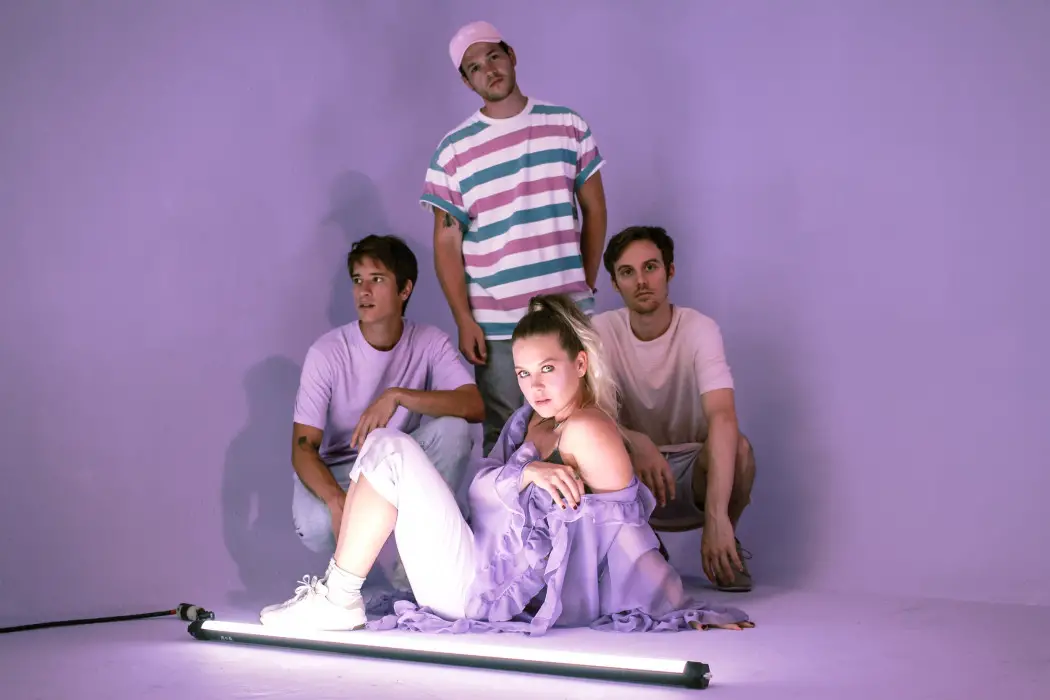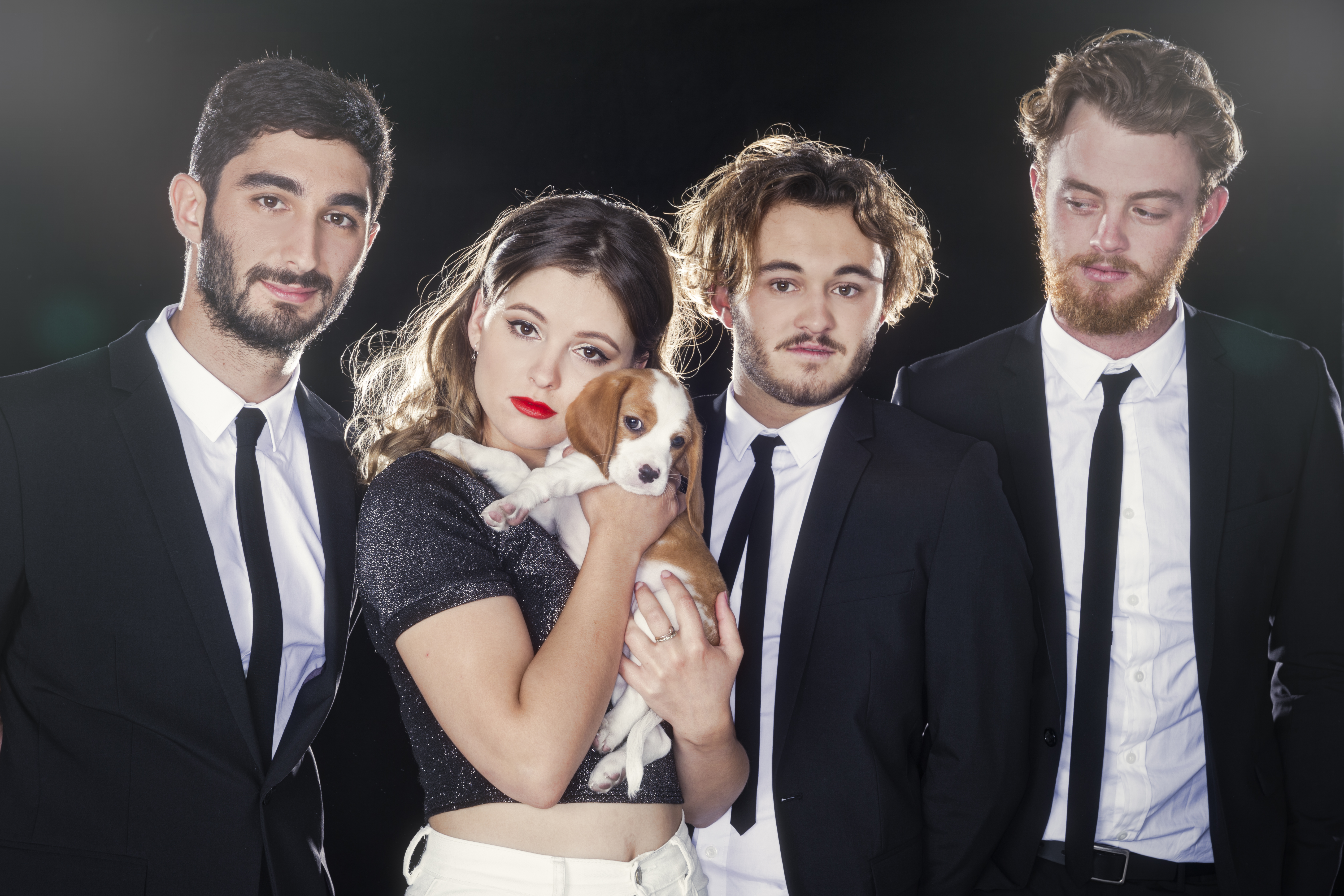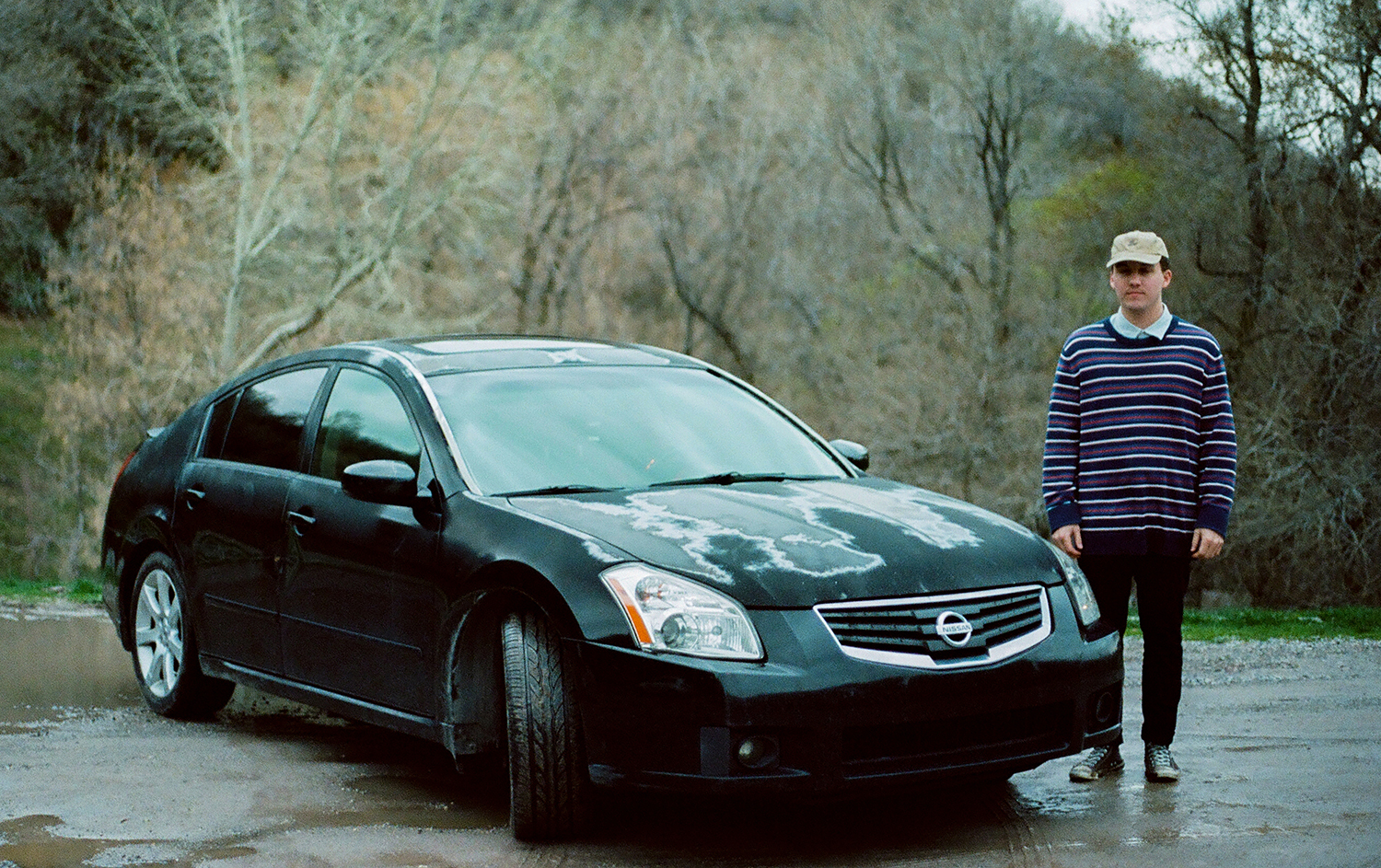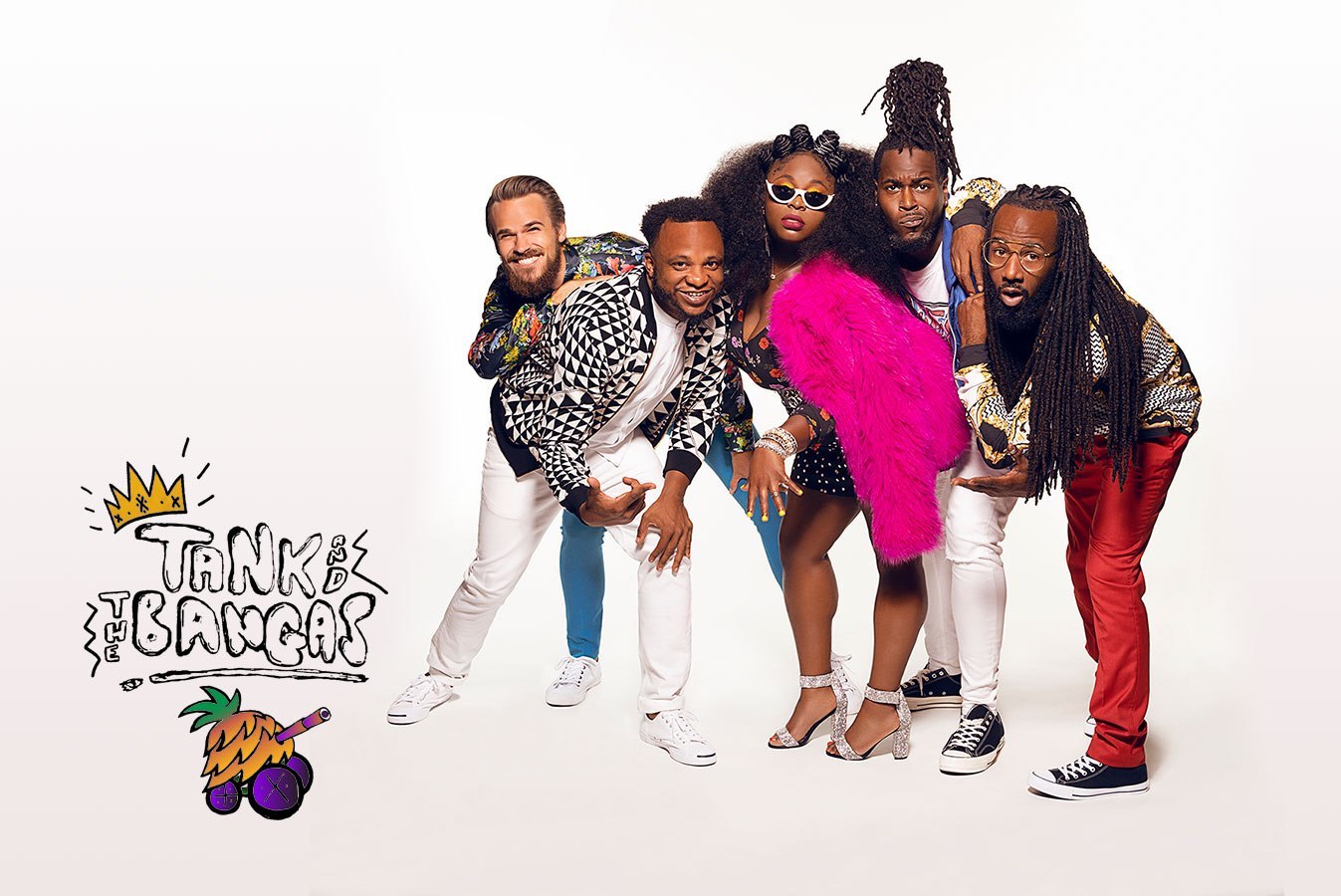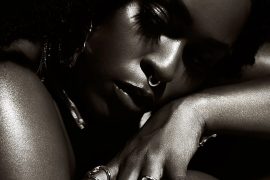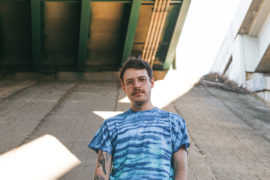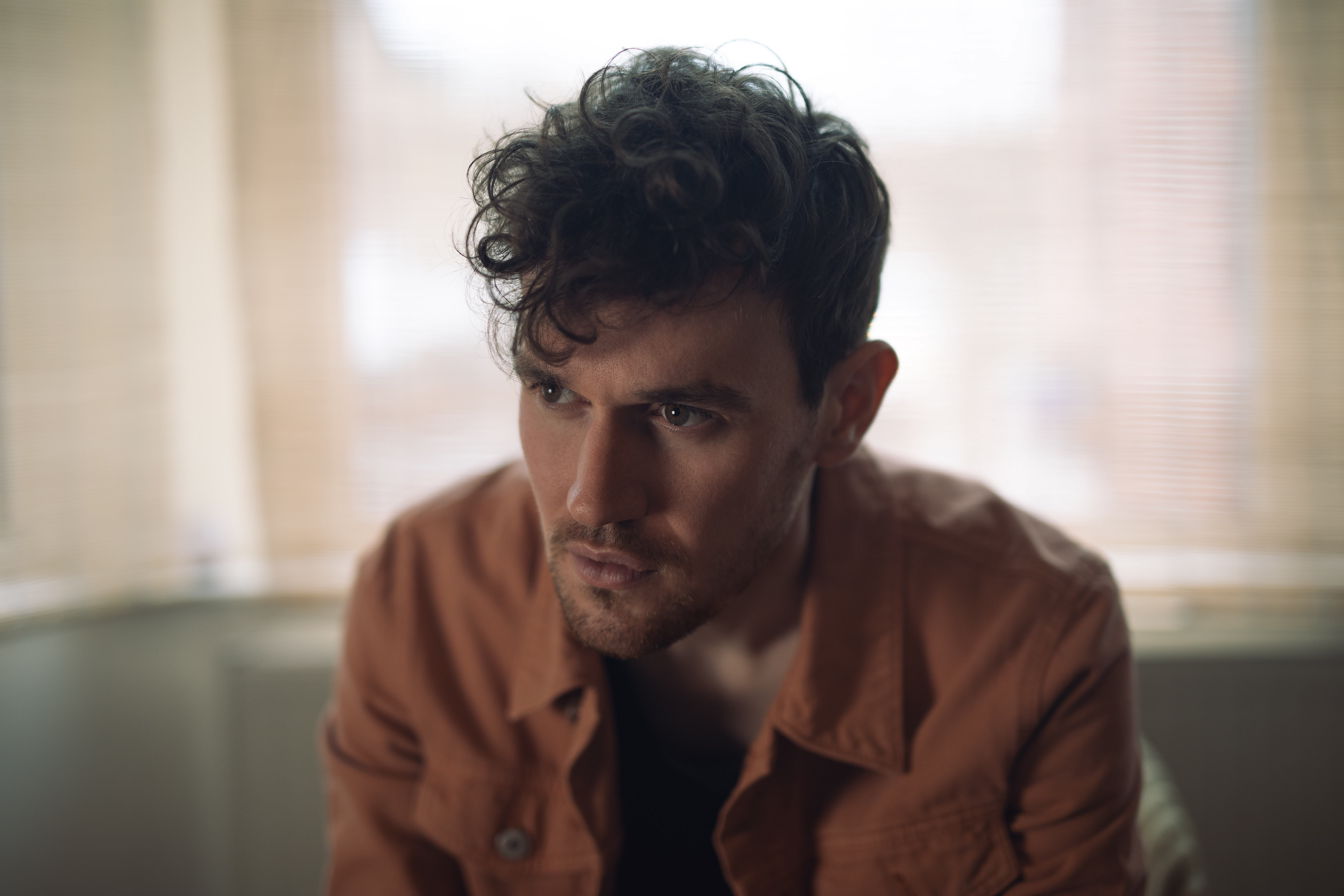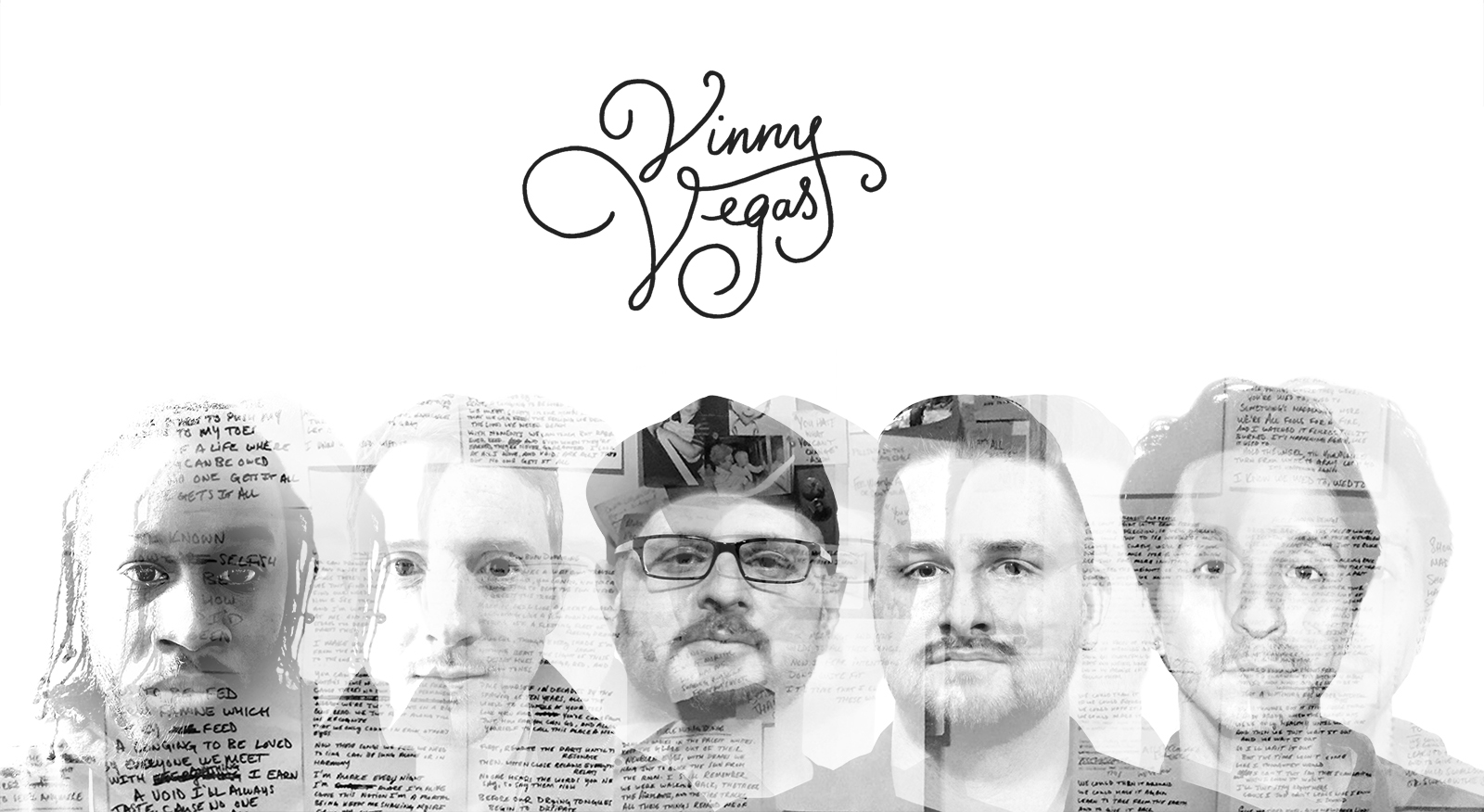Transviolet’s frontwoman Sarah McTaggart discusses the band’s evolution, the highs and lows of the music industry, and the importance of female empowerment and breaking stigmas.
written by Nicole Almeida and Maggie McHale
— —
Transviolet are impossible to ignore. A pop band through and through, the Los Angeles quartet crafts songs that emanate power and authenticity, expanding the boundaries of a genre that’s mostly made of recycled hits constructed for radio plays and playlist positions. “I was so sick of writing pop songs, I couldn’t do it anymore” says Sarah McTaggart, Transviolet’s formidable frontwoman. She’s referring to one of the most difficult moments of Transviolet’s career when, after the man who signed them to a major label was let go, they were stuck in a limbo between being shelved and being dropped. The band and label ended up splitting amicably.
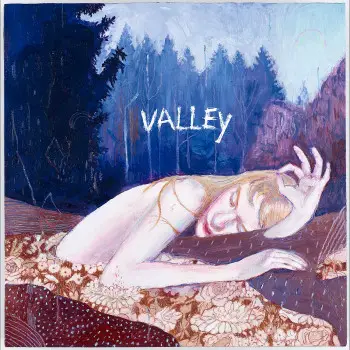
But Transviolet don’t shy away from challenges. They’re much stronger than that. And most importantly, they still have too many stories to tell, and nothing will stop them from using their voice. Now signed to BMG and fresh off their first US headline tour, Transviolet return with new EP, Valley, released today, September 21, 2018. Valley features fan-favourite “Close”, an ode to making out, as well as anthems of resilience like “Undo” and “Under”. The pulsating “Small Victory” celebrates those happy moments which at times seem insignificant, but ultimately end up getting you through rough times. It’s the best comeback a Transviolet fan could have hoped for.
Atwood Magazine talked to McTaggart about Transviolet’s incredible evolution, the highs and lows of the music industry, the importance of breaking gender-related stigmas, empowering and educating women, and where she drew strength from during the hardest of times.
Listen: Valley EP – Transviolet
A CONVERSATION WITH TRANSVIOLET
Atwood Magazine: Hi Sarah, how are you?
Sarah McTaggart: Hi, good! Good to talk to you guys.
We first saw you in Philly in 2016 when you were opening for LANY, and really fell in love with your sound and live performance. Since that day we’ve been wanting to speak to you about your music.
Sarah McTaggart: Oh, that’s awesome! Hell yeah. Glad I get to talk to you guys.
What has been the band’s journey since then?
Sarah McTaggart: (laughs) Yeah, it’s been a real rollercoaster for sure. When we were touring with LANY we were signed to Epic Records, and the label we were on was going through a lot of changes. One of them being LA Reid, the person who signed us and also the CEO of the label, was fired which put us in a weird position. It was one of those horror stories you hear from anyone who was on a label, the person who signed us left and we had nobody on our team and we didn’t know what was going to happen. We had friends and stuff who that had happened to before, but it was always like “That’s never going to happen to us, the CEO signed us so we’re good” and then when that happened we were like “Oh, fuck” (laughs). It was not a good situation. Pretty quickly after LA Reid was fired everybody else on our team either left or was fired, so we were left in a really bad position. We had all this music that we wanted to get out and no one on the label wanted to put it out there. We were getting stuck in writing session after writing session with these false hopes of “Well if you just write a hit or the next best thing” we’ll get it out there, and it was just like “Okay, we’re getting shelved”. Luckily we were able to get out of that situation and amicably leave the label and move on. After that it was like “Okay, we’ve been dropped from the label, now what? We have no money, how are we going to do this?”, the band and I sat down and I asked them point blank “Okay, what do you want to do? Do we break off, do we quit, do you want to keep going?”. And we all decided we want to keep going, this is music we believe in, we still have things we want to say, this is something we want to do so let’s just see if we can make this work, and somehow we did! We found people who believed in us and teamed up with them, and now we’re finally getting to release new music, we have an EP out in September, and we’re super excited to get things going again.
Are the songs that are coming out on the EP new or were they written years ago?
Sarah McTaggart: Some were written in that two-year period, but obviously we kept writing so I think one or two of them are from that period and some were written afterwards, some are only a few months old. It’s a mix of old and new. The songs are older but we’ve continued to work on the production since their inception so a lot of them are just now being finished, so in that way they’re pretty new.
So before we talk about the new EP, can you talk me through the video for “Pretty Head,” which I know you also directed? It’s one of my favourite music videos and songs, I’d love to know how you came up with the concept and what it was like to shoot it.
Sarah McTaggart: Aw, thank you! This song has always been this tongue-in-cheek, ironic song that says I’m just this dumb, pretty girl, what else do I have to say, you know? So the video pokes fun at that, especially with the imagery of the three girls just sitting and crossing their legs, in that almost doll-like movement. It was this really simply made video, it was one of those last things the label was like “Yeah, I guess we’ll give you a couple thousand bucks and you can go make a video” and I was like “Fuck you, I think this video is going to be amazing and this is one of my favourite songs”. I just put everything I had into making a video for the song. I wanted to showcase this idea of women being more than this pink, pretty little box that we’ve been put into. Breaking out of that box.
Was it hard to direct yourself?
Sarah McTaggart: (laughs) There were moments where it was crazy to try to do this. When you have a really small budget video it means you don’t have a lot of help, so between takes I was running around, setting up the scene, helping setting up the lights, popping from where I was sitting to behind the camera to see how it looked. There were moments where it felt like “This is completely insane, what am I doing?”. I remember a specific moment I was at the Goodwill in Beverly Hills picking up clothes, trying to make this ridiculously small budget stretch out for all these pink clothes, and I’m walking around this store with an armful of pastel pink clothing, pastel pink lamp, chairs, and I was like “Everybody in the store thinks I’m insane right now”, twenty pounds of pink objects in my arms. Moments like that I was like “What am I doing?”, I felt really over my head, I’d directed a couple of little videos before too but that was the first one I’d really taken the reigns completely. Luckily it all turned out okay (laughs) but yeah, in the moment I was like “What have I signed up for?”
Watch: “Pretty Head” – Transviolet
Both aesthetically and sonically, I feel like you started with super dark pop on your self-titled EP and early releases, then even though the lyrics were heavy, Kaleidoscopes brought about a somewhat lighter sound and look, and now you’re darker again but with a few elements of your lighter sound. What was this journey like as a band?
Sarah McTaggart: I feel like whenever I write I’m never looking super far ahead, it’s never super thought out, which probably isn’t a good thing to say. Day by day I’m just writing whatever comes into my mind and trying to scribble out whatever I’m feeling at the moment. That’s part of the reason why everything feels really honest and personal most of the times, because it is. On the other side of things, I think that’s another reason our body of work is very dramatic, because that’s my personality. I wake up one day and I’m manic and I’m happy and I want to write a fun song, and other days I drag myself out of bed to the piano and am just writing to survive (laughs) using music as my lifeline to keep everything together. You can hear that on our past work and on this EP as well, like “Undo” where I was in a darker place where I was like “I don’t want to do this anymore, I don’t know how to go on” and I was just at the piano trying to find the words to make sense of this tangled ball in my chest. Then there are other songs that are more lighthearted and fun on the EP like “Bad Intentions”, “Other Girl”, and “Small Victory”. The whole EP is about resilience and I come into that resilience through different passageways. Something like “Undo” and “Long Shot” it’s all about coming to that resilience through the struggle, through the darkness. And then there’s other ways you can find resilience as well through triumph, through humour, or where you’re just having a good time. I think the EP as a whole has a good balance of happy and sad and all the feelings in between.
I was going to ask you about the theme of resilience, but you’ve just answered that perfectly. Now knowing what you went through as a band, everything makes a lot more sense. It seems like this EP will be a sort of rebirth for you.
Sarah McTaggart: Definitely. I think that for the first time we have complete creative control over everything and I really understand where our sound is and what our aesthetic is and what I’m trying to say as an artist. I’m still trying to figure out who I am as a human being (laughs) but I think I’m getting closer. I think you can hear that on this EP.
The lyrics of “Small Victory” deal with feeling unimpressive and living in monotony, and desiring a better life. Where did that song derive from, and what have some of your small victories been lately?
Sarah McTaggart: We wrote that one with Dan and Leah from Dreamlab and Rob Ellmore. This was right in the middle of when Epic was falling apart and we were just being put from pop session to pop session and to be completely honest I was so sick of writing pop songs, I couldn’t deal with it anymore (laughs). And I feel bad for it now because Dan, Leah, and Rob were the sweetest people and I’m sure that at the time they were like “Let’s see where this goes and write a pop song” and I was like “I don’t want to! I don’t want to write a pop song”. I think what resulted is this funny pop song with a very pop melody and production but with these very strange lyrics that don’t really connect with that pop sensibility until you get to the chorus. And that’s very much how I felt at the time, I felt like I was just going through the motions and didn’t want to be involved in this pop world at the time. I was so frustrated with our current situation, it felt like nothing was connecting and I just couldn’t win, so I was like “Okay, if this is how I’m feeling right now I won’t try to write some love song or some other pop friendly subject matter because I’m sure other people have felt this way too, when they just can’t win and need something to get them through the day, that’s how I feel right now”. And lately, these small victories have been finding these people who believe in us and getting these songs out. Being able to release “Bad Intentions” and “Undo” and knowing that we’re going to be releasing an EP in September, these are the small victories, and having these fans who still support us and are eager to hop on and listen to our music when we put it out. It’s so cool that that exists. And also the last tour we went on was our first US headline tour and before we left I was like “Man, is this going to even be a thing? Is anyone even going to show up to these shows? I have no idea”. It’s really hard to know, especially, and it sounds weird to say, but we were on this big label and a lot of the time it feels like – or at least I was thinking in my own mind – is any of this real? Or is this just inflated? It feels like your success or whatever is fake. It feels like there’s so many people around you trying to trick everybody else into believing that you’re this pop sensation or this famous person and in my mind I’m like “I’m not famous, I’m not special, I’m not anything, I’m just this girl that writes songs I’m not this thing that everybody is trying to build up and buy into”. So when we went on tour I was like “What is this even going to look like? Do we even have fans or has this all been a big hoax?” and to show up to these and see these people actually be our fans, I was like “Holy shit, there are people that support us and want us to put out more music and are behind us so I guess we should keep going”. That pretty much feels like a small victory, just knowing that we have this support.

That’s awesome, knowing that you’ve been able to have all this support by yourself. But contrary to “Small Victory”, “Under” has a very take-no-shit, no-fucks-given theme to it, and feels very empowering - especially as a woman. What inspired writing that sort of narrative?
Sarah McTaggart: Yeah (laughs). I really loved writing that one, we did that one with Ton and Octavian who are these three guys and we all clicked really quickly. This was towards the end of our whole journey with Epic, at the moment I was feeling super defiant and rebellious against this idea that things were over. I was like “No, I’m going to keep going, I don’t really care that things feel hopeless right now, I’m going to make it work no matter what”. I think it is really tough as a woman to try and break through these ideas that have been set out for us – that we need to be beautiful, tick all these boxes, in addition to being talented, intelligent, and everything else. As a woman you can’t just do a good job or just be a good writer, or a talented musician, you also have to be hot too, it’s so exhausting. I don’t want to have to deal with that. As a woman I feel that just to get through our daily lives and get to our own goals we aren’t only dealing with the obstacles that are physically in front of us or things that in front of us right then, we’re also dealing with this emotional shit and baggage that’s been passed down to us for ages. I know for myself that when I first started meditating and doing yoga it was shocking to me the monologue that was going on in my head. I would sit down and meditate and it was like “What does my skin look like right now?” or whatever the hell it is. I was just like “Holy shit, is this always on repeat, on a loop in my head all the time and I just haven’t been tuned in with it? And I’m just letting this go as this white noise that’s been cluttering my mind?” It’s terrible. And as somebody who survived sexual assault as a teenager and grew up in a really religious background that thought of purity as the highest accomplishment it was also really complicated to come into womanhood and come into my own sexuality, and these are other things that I had to work past and work through. That’s what inspired those lyrics. How do I become everything I want to become? How do I reach these goals that I’ve set out for myself when I’m still just trying to survive on such a primitive, basic level? How do I excel? How do I overcome these obstacles?
That’s incredible. So awesome. Amazing. In the music industry today, what sort of responsibility do you feel you have as a woman with regard to speaking about important issues that should be talked about more?
Sarah McTaggart: I feel very responsible to talk about them, especially now that I feel that I’m in a place where I can talk about them. There was definitely a point in my life where I couldn’t, and for those people who can’t talk about those things, if I have the possibility to be that voice and let them know that they’re not alone and that this happens much too often and it’s not something that has to destroy you, it can be something that gives you strength and you can draw power from. I hope that anybody who has the strength to talk about these things will come forward, but I also understand that it’s sometimes not always an option, sometimes to preserve yourself you can’t talk about those things or it’s too hard at that time. That’s why I feel responsible to talk about these things and bring it forward. And it’s something that I definitely struggle with. Like I know I want to be body-positive and I want to practice self-love and I want to encourage others to do the same, but these ideas of beauty and the importance that’s put on it are so deeply entangled with my own identity and with my own stuff that it’s like “How can I go out and tell young girls that they should be proud of the way they look and embrace themselves if I’m looking back at videos of myself and tearing myself down?”. I need to address that shit for myself first, I need to figure out where that’s coming from first. We all need to take a good look at ourselves and, as much as we can point fingers at society and say that the media makes us feel this way and men make us feel this way, it’s also on us too. Yes, we definitely need more diverse bodies in media, but we have to re-teach ourselves how to talk about ourselves, how to talk about our bodies, how to talk about our own sexuality amongst our peers and with ourselves too. Can I wake up in the morning, look in the mirror and instead of honing in on my flaws and tearing everything apart, can I find something I like? Can I feel good about my body? Can I learn to compliment myself? Can I learn to compliment my friends in a way that’s empowering and helps lift them up? That’s just something we’re going to have to figure out how to do over time. It’s not going to be something that happens overnight but I do believe that that’s possible. I have this young niece and I always want to be really careful about how I talk about my own body around her, I don’t ever want to talk about how I need to go on a diet or how I don’t like something about myself, I want to make sure that when I’m talking about myself she sees how I love myself and my own body and I’m proud of the amazing things that my body can do, and I can teach her how to be proud of her body and the things it can do as well versus just focusing on how we look.
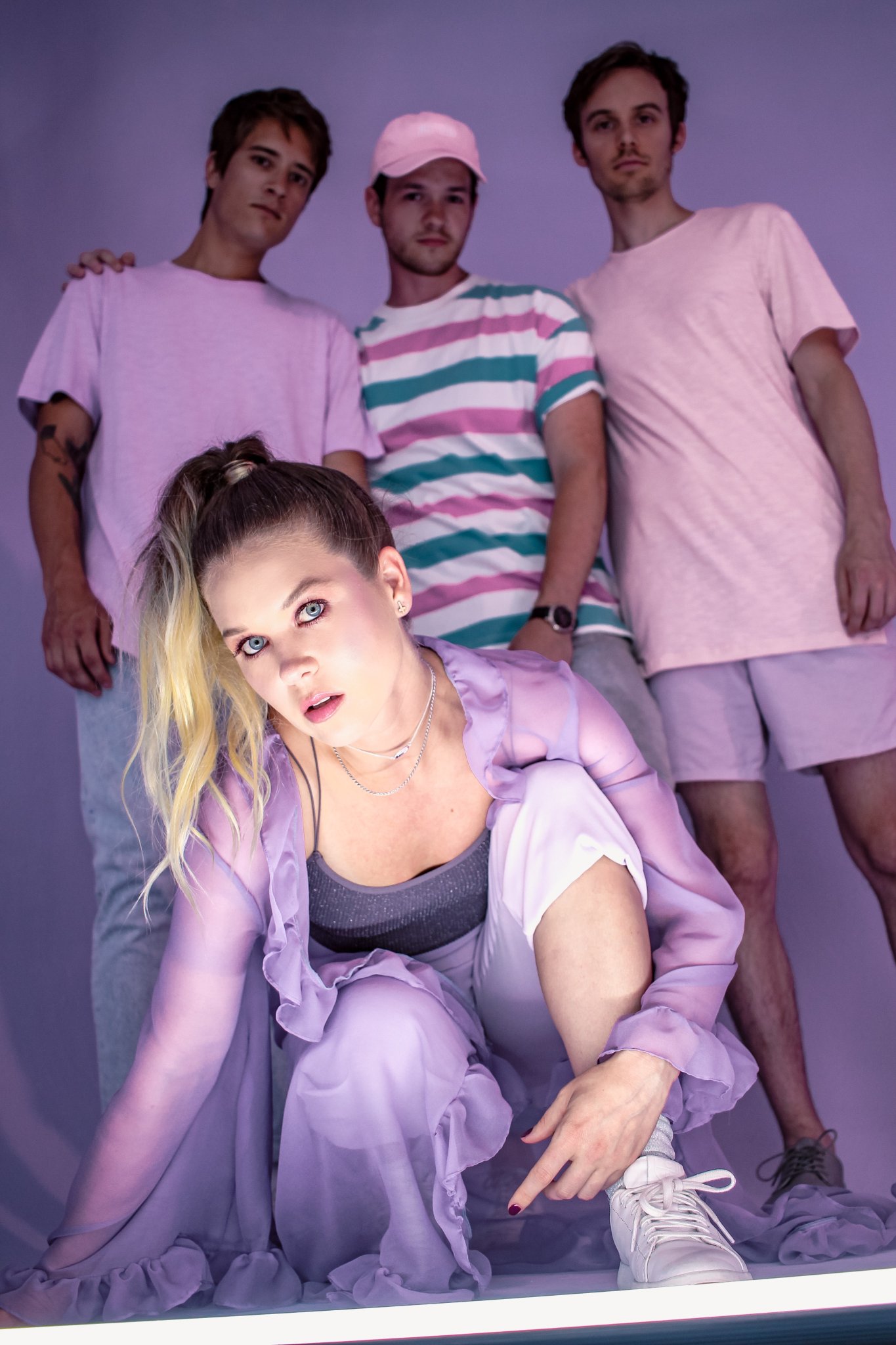
Totally. That’s so important, especially teaching younger generations as well. It’s really important to make sure they know that, for example, yes the boy can play with the doll and the girl can play with the car, and everything will be fine.
Sarah McTaggart: Yeah, definitely. Those things about gender and your sexuality, how can we start talking about consent and body positivity earlier? So it isn’t a big shock later. The other thing that I’ve heard too is that, having the consent conversation with boys and how important that is. I fully agree with all of it, I definitely think boys should understand consent too, but teaching girls about consent is also super important too so they understand if lines are ever crossed. When I was 13 and that happened to me I didn’t come forward because I didn’t understand that what happened to me was wrong, I thought that I was at fault because I didn’t really understand consent. I didn’t understand that by me not saying anything that didn’t mean that the person automatically had consent to do that. That conversation needs to be super clear, and also teaching women about their bodies so that they have the language to communicate if anything happens. So at that young age I didn’t understand how to tell my parents or anybody what was happening. I was raised in this community, this super strict Christian community, where people didn’t talk about sex and didn’t talk about anything, so I didn’t know what a vulva was, what a vagina was or anything. How do I communicate that something is happening and I don’t want it to keep happening?
Breaking the stigma is so important, and has always been important but has just now become a part of the conversation. As long as we continue to be as open as possible with everything then we can help eradicate that stigma.
Sarah McTaggart: 100%. That’s the other thing that bothers me too, these ideas about purity and chastity. There are so many ways in which it’s harmful and one of the ways is – let’s say that you do decide to follow this idea that purity and chastity are things that you should strive for. If you get married and you’re a virgin and you’ve waited and done all the right things and ticked all those boxes, and it’s become this integral part of your identity, and then you lose your virginity on your wedding night, who are you after that? You’re not a virgin, you’re not this thing that you’ve literally invested probably decades of your life poring over, now who are you? If you tie yourself to that identity so much it’s going to be really hard to figure out who you are after that. That’s something else I had to deal with in my late teens, like “Okay I’m not this thing anymore that I thought I was, I don’t want to be this but now what? Now what am I?”. That’s something we need to cross as women, this idea of being the madonna or being the whore is still super common. It’s still so sad that we’re trying to deal with that and move past that but we are, and we have to figure out who we are outside of those two very narrow archetypes and move on because we’re so much more than that. Our sexuality can be whatever we want it to be.
What do you think is one of the biggest misconceptions of being a female artist and pouring all of this into your music, especially considering that the other members in your band are all guys?
Sarah McTaggart: I’ve been pretty lucky with the people I’ve worked with. They already know going into it that I do have a lot to say and a lot to offer, but like in any other profession you’re going to come across people who are jerks and don’t see your value. Unfortunately that happens every once in a while but I just don’t work with them anymore. I’ve had people interrupt me, or ignore me, or look over me in sessions, look to the guys asking them stuff. I’ll give an idea for a lyric or a melodic part or production idea and they’ll ignore me, and then the guys will say the same thing a few seconds later and all of a sudden it’s a good idea? It’s like “Okay, well, you don’t want to listen to my ideas or think that they’re valid? Never working with you again”. We’ve had these really dumb interactions, like one time the guys and I are all at a party and we were talking to this guy, just imagine the stereotype of 1980s rocker dude, super tan, hairy chest, leather pants, leather vest with no shirt, just that guy, and we were all kind of chatting and he was making some weird comments so I was like “Well okay I’m going to the other room to get myself a drink and remove myself from this conversation” and while I was gone he said to Judah: “What’s it like being on tour with somebody who bleeds?”. I know (laughs). Apparently Judah, without missing a beat, goes “Everybody bleeds, man”. I was like “Yes, that’s amazing”. It’s pretty amazing, I think especially in LA, it’s so easy to be in your bubble and think that nobody thinks like that anymore and these people don’t exist anymore, but apparently they do. There are still some of them hanging around, but I don’t think they’re going to last very long. Women are over it, nobody’s impressed by that anymore, nobody thinks that acting like an asshole or acting like a tough guy is cool anymore, now it’s more like “Who are you, why are you acting like that?”. Emotional intelligence is so hot, that’s so attractive, and men who do possess that characteristic are the ones that women want to be with, the ones who don’t have that are going to go extinct. The natural selection process is not going to be very kind to you.
What has been your favourite part about being a band in general, but also with these guys?
Sarah McTaggart: I really like collaboration. If you’re working on something by yourself you’re isolated with your own ideas and it’s never going to get better than your own ideas, which can be good. Sometimes when I have a concept in mind I’ll sit down with it for a few days and hone in the concept and understand what I’m trying to say before showing it to the band or bringing anybody in from the outside. We work really well together, and the guys are all so talented and artistic in their own ways. They’re all producers, so that means we’re very independent when we’re working. We like working with other producers, don’t get me wrong, but it’s really nice to know that we can just be the four of us in a room with a song and get it done, we don’t need anybody else necessarily. The guys have gotten really good at other sides of production as well, like Mike is editing our videos, he edited the whole “Pretty Head” video and he’s editing our video for “Undo”. I like having someone to bounce ideas off of, and I challenge them to be better, they challenge me to be better, and because of them I think I’ve grown as an artist. Because there’s four of us we always push each other to keep growing and keep evolving. I think it’s really easy if you’re writing on your own or making art on your own, to be like “Oh this is the best, this is my idea and it’s the best idea”. Whereas if you’re working with four other people you have a mirror held up at you, like “Oh, okay is this exactly what you’re trying to say or is there a better way to say it?”, you always have that and I think it’s really healthy for creating great art.
Watch: “Undo” – Transviolet
If you had to sum it up in a few sentences, what’s the one thing you’d want people to know about Transviolet and your music?
Sarah McTaggart: I’d like them to be inspired to find their own voice, see that I’m making something that’s authentic and honest and inspire them to do the same. Music has been this outlet for me to find my way and work through a lot of my own shit and I hope that in me creating something that did that for me, that it would inspire others that did that for them. To know that they can find their own outlet and that they don’t have to be just in their own emotional mess of entangled feelings, that you can untangle these feelings and whatever that medium is, it’s out there for you, you just have to keep searching for it and just makes you the most happy and feel most liberated and hold on to it. Don’t let other people deter you or make you feel like it’s not valuable because even if it’s just for yourself and just to keep your own sanity, that’s so valuable, to be able to find something that does that for you.
— —
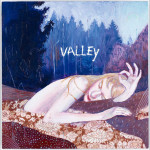
Connect with Transviolet on
Facebook, Instagram, Twitter
Discover new music on Atwood Magazine
? © Chris Greenwell

